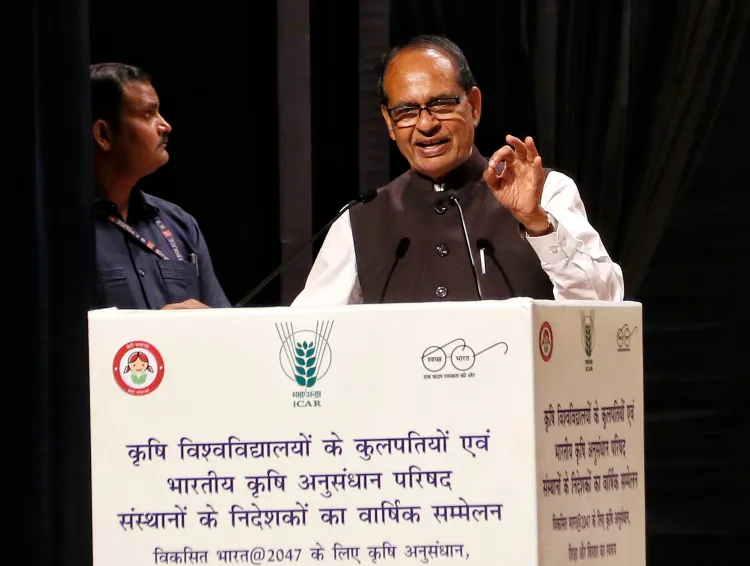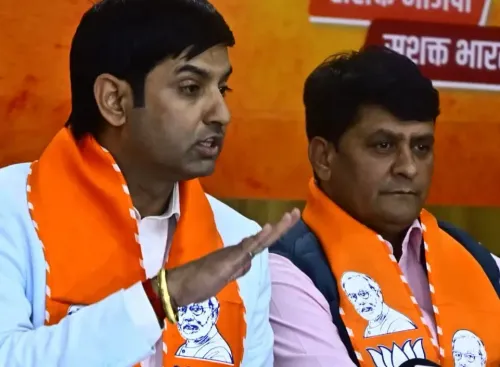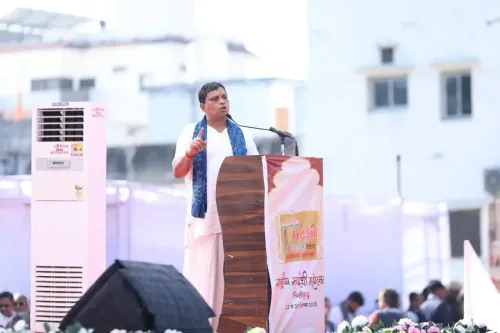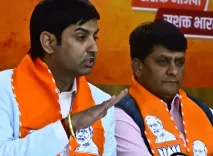Why Does Agri Research Need a Practical Approach?

Synopsis
Key Takeaways
- Practical agricultural research is essential for farmer benefit.
- Aim to transform agriculture into a one trillion-dollar economy.
- Importance of environmental sustainability and agricultural diversification.
- Engagement with farmers through initiatives like padayatra.
- Maintaining a 5% growth rate in agriculture is crucial.
New Delhi, May 20 (NationPress) Union Minister for Agriculture and Farmers’ Welfare and Rural Development Shivraj Singh Chouhan emphasized the necessity of a real-world approach to agricultural practices, asserting that the advantages must reach those who labor in the fields. “Research must be practical and adapted to the actual conditions of agricultural work, ensuring its benefits reach those cultivating the land,” the minister remarked. He also outlined ambitious economic targets, aspiring to elevate India's agricultural sector into a one trillion-dollar economy to support the nation's broader five-trillion-dollar economic vision. To achieve this, he noted that agricultural exports need to rise from 6 percent to 20 percent.
Chouhan reiterated his ministry's commitment to science-driven agricultural transformation while also valuing traditional farming methods. His remarks were made at the annual conference of Vice-Chancellors of Agricultural Universities and Directors of ICAR Institutes, held at the Dr C Subramaniam Auditorium, NASC Complex, Pusa, New Delhi.
Chouhan praised the Indian Council of Agricultural Research for its contributions to research and extension efforts. He stressed the importance of agricultural diversification and environmental stewardship, highlighting that these are among India's greatest collective duties. He introduced the “Viksit Krishi Sankalp Abhiyan” as a milestone initiative aimed at empowering farmers, improving their livelihoods, and addressing grassroots challenges. As part of this initiative, he announced a padayatra (foot march) on May 25-26 to engage directly with farmers and understand their concerns.
The Union Minister underlined India's overarching agricultural objectives, including food security, replenishing national grain reserves, and positioning the nation as a global food supplier. He declared, “We are one team, and our mantra is One Nation, One Agriculture, One Team.”
He reiterated that advancing agriculture and empowering farmers is crucial for realizing the vision of a developed India. Farmers, he stated, are akin to divine nurturers deserving of profound respect and robust support. Ensuring their well-being and securing their prosperity must remain a top priority.
The minister outlined several key focus areas, starting with innovation-led research followed by a deep understanding of farmers' real needs. He pointed out that agricultural research should not be dictated solely by institutions in Delhi but should address the specific challenges faced by farmers in villages.
Chouhan highlighted India's extensive gene bank, which holds over 450,000 germplasm accessions, although only a small percentage is currently utilized. Budgetary provisions have been allocated for the establishment of another gene bank, aimed at leveraging genetic resources for enhanced agricultural productivity. He emphasized the need to maintain a consistent agricultural growth rate of at least 5 percent to meet national targets by 2047.
In closing, Chouhan commended ICAR for its role in promoting agricultural education, research, and extension, describing it as a center of excellence. He reaffirmed the commitment to establishing short-term objectives and reaching pivotal milestones within the year.










